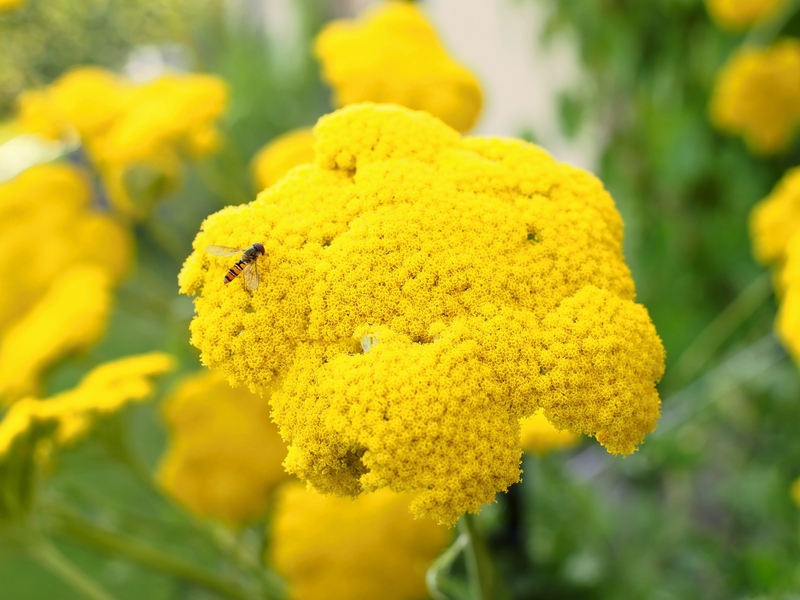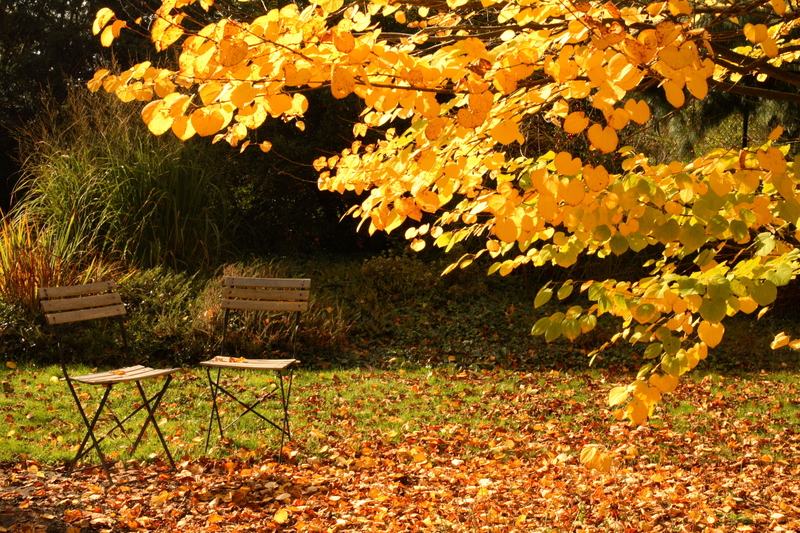9 Crucial Gardening Tips Every Beginner Should Know
Posted on 22/06/2025
9 Crucial Gardening Tips Every Beginner Should Know
Are you ready to transform your outdoor space into a lush, thriving garden? Whether you dream of vibrant flower beds, homegrown vegetables, or a tranquil green oasis, starting a garden can be both exciting and overwhelming. To set you off on the right foot, we've compiled the top gardening tips for beginners that will help ensure your gardening journey is rewarding and successful.
Why Following Essential Gardening Advice Matters
Understanding the key fundamentals of gardening can:
- Save you time
- Prevent common mistakes
- Yield healthier plants
- Provide more satisfaction and less frustration
By following proven gardening tips for newbies, you can avoid pitfalls and enjoy your green endeavors right from the start!

1. Choose the Right Garden Location
Sunlight is Crucial
One of the most essential pieces of beginner gardening advice is selecting the best location for your garden. Most vegetables and many flowers need at least 6-8 hours of direct sunlight per day. Observe your yard throughout the day to determine the sunniest spots before planting.
Consider Accessibility
Make sure your garden plot is easy to reach for watering, weeding, and harvesting. The more accessible your garden is, the more inclined you'll be to care for it regularly.
2. Understand Your Soil
Test Your Soil
Healthy soil is the foundation of a thriving garden. Start by testing your soil's PH and texture, which you can quickly do with an inexpensive kit from a gardening center.
- Sandy soils drain quickly but may lack nutrients.
- Clay soils are rich but can be heavy and waterlogged.
- Loamy soil is considered ideal for most plants.
Improve with Compost
Enrich your soil with compost or well-rotted manure. This provides vital nutrients and encourages beneficial organisms that support healthy plant growth. Good soil preparation is a must for gardening beginners!
3. Select Appropriate Plants
Start Simple and Native
For the easiest gardening experience, choose plants that are native to your region or suited to your climate and soil. Native plants are hardier, less prone to disease, and require less maintenance.
Read Plant Labels
Begin with beginner-friendly crops like tomatoes, lettuce, marigolds, zinnias, or sunflowers. Check seed packets or nursery labels for planting instructions, sunlight requirements, and ideal growing temperatures.
4. Master Proper Watering Techniques
Don't Overwater!
Overwatering is one of the most common beginner gardening mistakes. Most plants prefer deep, infrequent watering over daily shallow sprinkles. Water early in the morning to prevent evaporation and fungal diseases.
- Check soil moisture by sticking your finger a few inches deep. If it feels dry, it's time to water.
- Avoid wetting leaves, as this can lead to disease.
Mulch to Retain Moisture
Apply mulch around your plants. Mulch helps keep the soil moist, controls weeds, and adds organic matter as it breaks down. This tip is invaluable for new gardeners.
5. Feed Your Plants with the Right Fertilizer
Understanding Fertilizer
All plants need the right mix of essential nutrients. Read up on basic fertilizer numbers--Nitrogen (N), Phosphorus (P), and Potassium (K)--and choose the right balance for your plants.
Don't Overdo It
Excess fertilizer can harm plants, so always start with less and follow package instructions. Consider organic options like fish emulsion, blood meal, or homemade compost tea.
Monitor Plant Growth
If your plants look pale or stunted, they may need a nutrient boost. Regularly monitor and adjust your feeding plan throughout the growing season.
6. Stay on Top of Weeds
Why Weed Control is Important
Weeds compete for nutrients, water, and sunlight, often outgrowing and overwhelming your desirable plants. Staying proactive can make a big difference.
- Pull weeds when they're small for easier removal and minimal root disturbance.
- Use mulch to smother weed seeds and reduce the need for chemical controls.
Regular weeding is one of the most crucial gardening tips every beginner should remember!
7. Patience and Consistency Pay Off
Be Patient with Growth
Gardening is a rewarding but gradual process. Seeds take time to germinate and plants need weeks--even months--to mature. Don't be discouraged if your garden doesn't look perfect immediately.
Establish a Routine
Consistency is key to success. Set aside a little time each day or week to tend your garden. Little efforts add up to big results!
8. Protect Your Garden from Pests and Diseases
Monitor Your Plants
Regular inspection can catch pest and disease issues before they become serious. Check leaves (top and bottom), stems, and soil for signs of trouble.
- Handpick pests like caterpillars or beetles when possible.
- Use barriers like row covers for vulnerable crops.
- Rotate crops annually to minimize disease build-up in the soil.
Natural pest control methods are often the best choice for beginner gardeners.
9. Keep Learning and Have Fun!
Learn from Every Season
The best gardeners are always learning. Keep a gardening journal to track what works, what doesn't, and what you'd like to try next time. Join gardening forums, take local classes, or chat with other gardeners in your community.
Experiment and Enjoy
Don't be afraid to experiment with plants, layouts, and techniques. Gardening is as much about the journey as the harvest. Enjoy watching your plants grow and celebrate the small victories along the way.
Bonus Tip: Tools Every Beginner Gardener Should Have
- Gloves: Protect your hands from dirt and thorns.
- Hand trowel: Essential for planting and transplanting.
- Watering can or hose: Choose one that's easy to handle.
- Pruners: Ideal for cutting back plants and collecting harvest.
- Garden fork: Helpful for loosening, lifting, and turning soil.
- Rake: Perfect for clearing debris and smoothing soil.

Frequently Asked Questions: Beginner Gardening Tips
When is the best time to start gardening?
The optimal time depends on your local climate and what you want to grow. Most beginners start in spring after the last frost, but some cool-season crops can be planted in fall.
How big should my first garden be?
Start small. A 4x4 or 4x8 foot bed is manageable for most beginners and won't be overwhelming.
Do I need to use chemicals to keep my plants healthy?
No! Focus on healthy soil, proper watering, and natural pest control. Organic gardening is both effective and environmentally friendly.
Conclusion: Start Your Gardening Journey Today!
With these 9 crucial gardening tips every beginner should know, you're well on your way to a rewarding, beautiful garden. Remember, gardening is a learning process--embrace the challenges, celebrate your progress, and most importantly, have fun. Now it's time to dig in and watch your green dreams come to life!
Happy Gardening!
Latest Posts
Effective Strategies for Managing Weed Growth
Discovering the World of Container Gardening
Unleash Your Creativity: Start Your Neglected Garden Makeover



